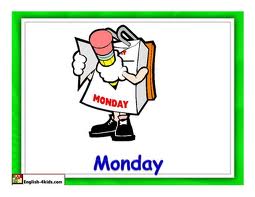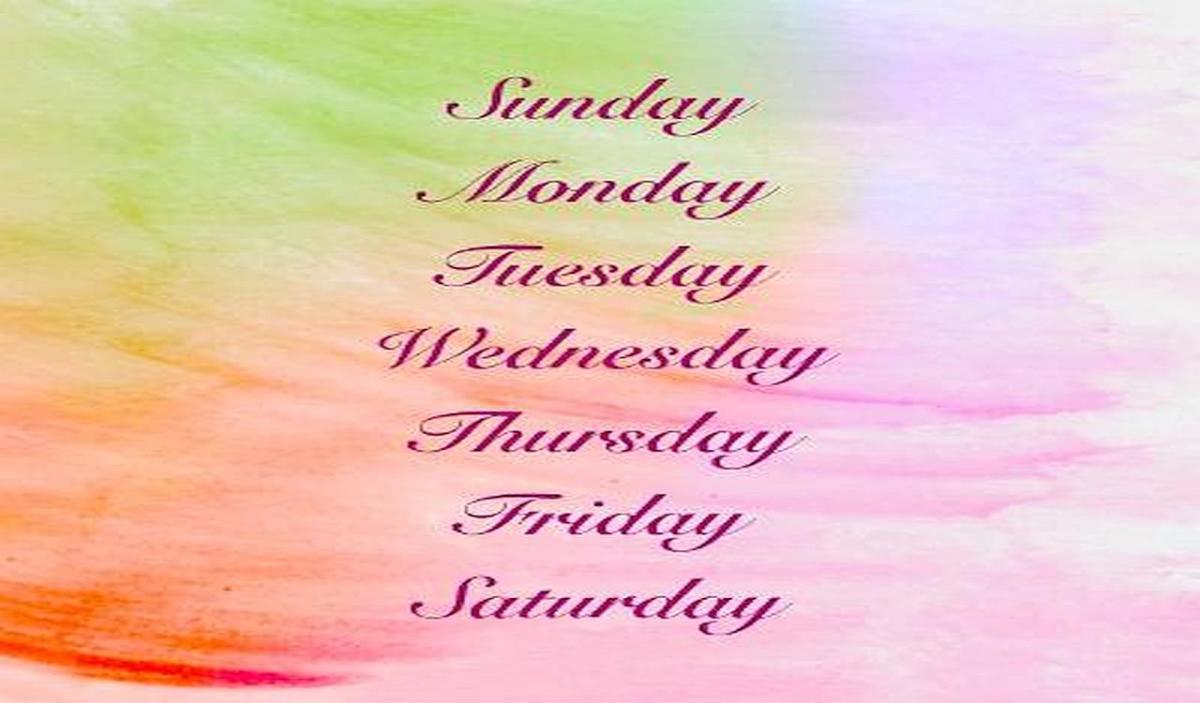- HubPages»
- Health»
- Mental Health»
- Emotions
Making Mondays Better - Moods and the Day of the Week

The Most Difficult Day of the Week
Monday. It is known as the first day of the weekday, and named for the moon in many latin based languages. In Russian, Monday is called Ponedelnik, - which means "after do nothing".
For most of us who have traditional Monday through Friday workweeks, Monday usually means the start of a long work week ahead. But is Monday as hard as we really think, or does our own perception make this day seem worse than it is? Mondays may really be Mind-days, if it is all the way we look at things.
Many studies have been conducted to see the correlation between moods and the day of the week. In a recent survey involving 202 people, participants were asked what they thought their mood was for each day of the week. Most of the people believed their worst moods were on a Monday, with 65% believing Monday morning was the worst and 35% believed Monday evening was their worst mood. Most of the participants believed their best.moods were on Friday evenings (43%) and Saturday morning (45%). The researchers, Charles S. Areni of the University of Sydney and Mitchell Burger of the NTF Group decided to delve further into the participants self reported moods for the days of the week. In further studies, they surveyed 351 people about their moods, questioning them each day of the week and their current mood.
Memory Bias and Mondays
In reality, people had a fairly steady mood throughout the week. On Monday’s people didn’t feel as bad as they thought. On Friday’s and Saturday’s they didn’t feel as excited as they had predicted. The researchers concluded that people suffer from what is known as memory bias.
Memory bias changes the way we recall events. Mondays typically are harder to start the work week after a weekend. With memory bias, we naturally recall the worst of Mondays. Fridays and Saturdays are usually associated with more fun. Memory bias allows us to recall the Fridays and Saturdays with more positive anticipation. We attribute what we think our moods are to the best and worst feelings we have had on these days.
Most people in the survey reported that they looked forward to the weekends because of less structure and discipline and more freedom with their time. In reality, the respondents spent their free time trying to be productive in order to feel fulfilled. To fill their time, they ended up doing chores and other activities that was similar to paid work.
The survey validated the idea that people over valued the enjoyment their free time brought them during the weekend. In reality, Monday was not as bad as they thought, and the weekend was not as great as they had anticipated.
"Working for the Weekend"
The Weekend Effect
In the Journal oí Social and Clinical Psychology, Richard Ryan, Iessehy Bernstein, and Kirk Warren Brown studied the effects of weekend, non working time and weekday, work times have on our mood. 74 people in various occupations were surveyed. The researchers concluded that the non working and weekend times were be a greater source of well being, higher satisfaction levels, and greater autonomy from basic psychological needs being met.
Richard Ryan, a professor at the University of Rochester deemed it the “weekend effect”, where people are in a better mood on Saturday than Monday. The survey noted people have a greater sense of energy and complain of less aches and pains on weekends. The autonomy we have on weekends, and the choices we make with our free time help us feel happier. This allows us to have a better sense of well being and self efficacy. In addition, the social connections we have on weekends build a better mood.
You Can Have Fun in the Middle of the Week Too!
However people who have fun in the middle of the week, and make social arrangements on a Tuesday for example, can have the same mood booster as the weekend effect. Anyone can have fun in the middle of the week. You don’t have to wait until the weekend. Even if you feel a little tired, you will be surprised how uplifting a fun time mid week can be. There are many benefits to being connected, autonomous, capable and relaxed from the benefits of adding middle of the week fun.
Take this Poll
What is the Most Difficult Day of the Week for You?
Weekends and Our Basic Psychological Needs
Many surveys through the decades have shown there is a weekend effect where people have more positive moods from Friday through Sunday. Monday moods were not much different from the rest of the work week through Thursday.
The positive moods of the weekend do result in feelings of well being, vigor and vitality. The theory behind the “weekend effect” come from the idea that we gain intrinsically rewarding experiences from our leisure time. Leisure time usually involves spending time with people and pets who are close to us, and choosing activities that bring us more satisfaction than the responsibilities we have at work.
The three psychological basic needs, that of autonomy (feeling of independence), relatedness (feeling close and connected to other people), and competence (feeling effective in the activities we are doing and accomplishing) are integral to optimal functioning and promotion of well being, and are all part of the “weekend effect”. The need for competence seemed to be satisfied during the workweek as equally as the weekend. Autonomy and relatedness enhance a person’s wellness and is associated with the release from the constraints of work.
Rainy Days and Mondays
Monday is Hardest on Us
In another study about how hard Monday’s can be, it was found sleep had a lot to do with our Monday morning feelings. In the journal Sleep, researchers studied 159 middle aged adults. 142 people slept for 2 nights for 10 hours each night. Then they were only allowed to get 4 hours of sleep for 5 nights in a row.
Afterwards they were given random hours of sleep each night from no hours to 10 hours. The other 17 people in the survey were given 10 hours every night. People who were sleep deprived were observed to have shorter attention spans. reduced reaction time, and impared alertness. After one night of normal sleep everything returned to normal. Monday is hardest on us simply because we need more sleep.
What About Wednesdays?
Psychologists have begun noting that the hardest day of the week may in fact be Wednesday. With the past weekend long behind us, the next weekend far ahead, coupled with a burdening workload, Wednesday may be the most difficult day to get through.
The history of the work week dates back to early European Industrial age, when people typically worked 6 days a week. In the late 19th and 20th century people rallied for a shorter work week. Henry Ford became a big proponent of the 5 day work week for his factory workers, believing people needed leisure time in order to be more productive at work. He also knew that when people have more free time, they will spend more more money on consumer goods.
Monday, Monday by the Mamas and the Papas
Are We Less Motivated on Mondays?
In studying people and work, productivity levels were found to vary during the week. The two day weekend gives us the opportunity to rest before the start of the new week. On Monday’s we have to reorient ourselves with the work routine. People may also have less motivation on Monday, because it is the day furthest from the next leisure time of the weekend. People might be more motivated to complete their tasks so that their weekend is free. Some think that Tuesday and Wednesday is the highest productivity times of the week.
In nontraditional work weeks, people may have various feelings on different days of the week. For example, those who work on weekends may enjoy a less hectic pace than than the Monday through Friday workers, and may value their two off days by avoiding the crowds traditional Monday through Friday workers endure. Of course the opposite may be true also. Workers may resent having to work on weekends when their family and friends are off. Again, the answer has to do with perception and a person’s choice of how they like to look at their leisure time.
We May Have Lower Stress Levels on Friday
Most people prefer social connections, which usually occur on weekends. In a study done on workers and productiviy, it was found that Monday had the highest level of employee absenteeism. The rate was half that on Fridays. In a study done in Britain during 1991-2000, people who were surveyed on a Friday or a Saturday stated they had greater job satisfaction than the employees who were questioned during the week. It was also found that people have lower stress levels on Friday than during the week. This research concluded that there is a correlation between job satisfaction and productivity, morale, and job turnover.
Which Day of the Week is Best to ...
view quiz statisticsThe Happiest Day of the Week
In a 2006 a blog data analysis was done by two researchers who found Saturday to be the happiest day of the week. Wednesday is the least happiest. Thursday ‘had an immediate rise in happiness levels, due it is believed, to the anticipation of the weekend. Sunday had a big decline in happiness levels, probably due to the anticipation of the start of the work week.
How Does Monday Affect our Hearts and the Stock Market?
Scientists have discovered that Mondays have the highest rate of on the job heart attacks. But in a University of Maryland study, retired men have twice the amount of cardiac events on Mondays as they do on Sundays. Even retired people look at Mondays differently than Sundays states a University of Kentucky cardiologist, and it is known that psychological factors can trigger heart problems.
Even the stock market is affected by Monday, which has shown more trader pessimism.
Here are some tips to improve your Monday’s:
- Ease yourself into the day. Let yourself get back to your work routine more as the day goes on, instead of jumping right into it . Try to keep your schedule light on Monday mornings. In all liklihood you will get the same amount done by the end of the day, but will feel less pressure : )
- Give yourself something to look forward to on Mondays. Perhaps lunch with a friend, doing something special for yourself, or something fun to do at the end of the day. A little bit of fun can make all the difference in how you look at Mondays.
- Know yourself. If you do your best thinking early in the day, you might do well to take on a challenging task because you are refreshed from the weekend. Use your brainpower when it is at its best.
- Very often we approach Monday with dread. I used to refer to it as, YTW (Yuck Tomorrow’s Work) in the days when I didn’t like my job. Having a negative attitude toward the next day makes that day more difficult in our minds. Think of something more positive so that the transition from the weekend to the start of the workweek is more pleasant.
- try to avoid overscheduling your day and leave some unscheduled time each day.
- do something you love
- do something new or something you have always wanted to do
- add spontaniety to your day, it will avoid burnout from your daily routine.
Mind over Mondays
You don’t have to wait for the weekend to enjoy yourself and look forward to each day. It really is a matter of mind over Mondays.








